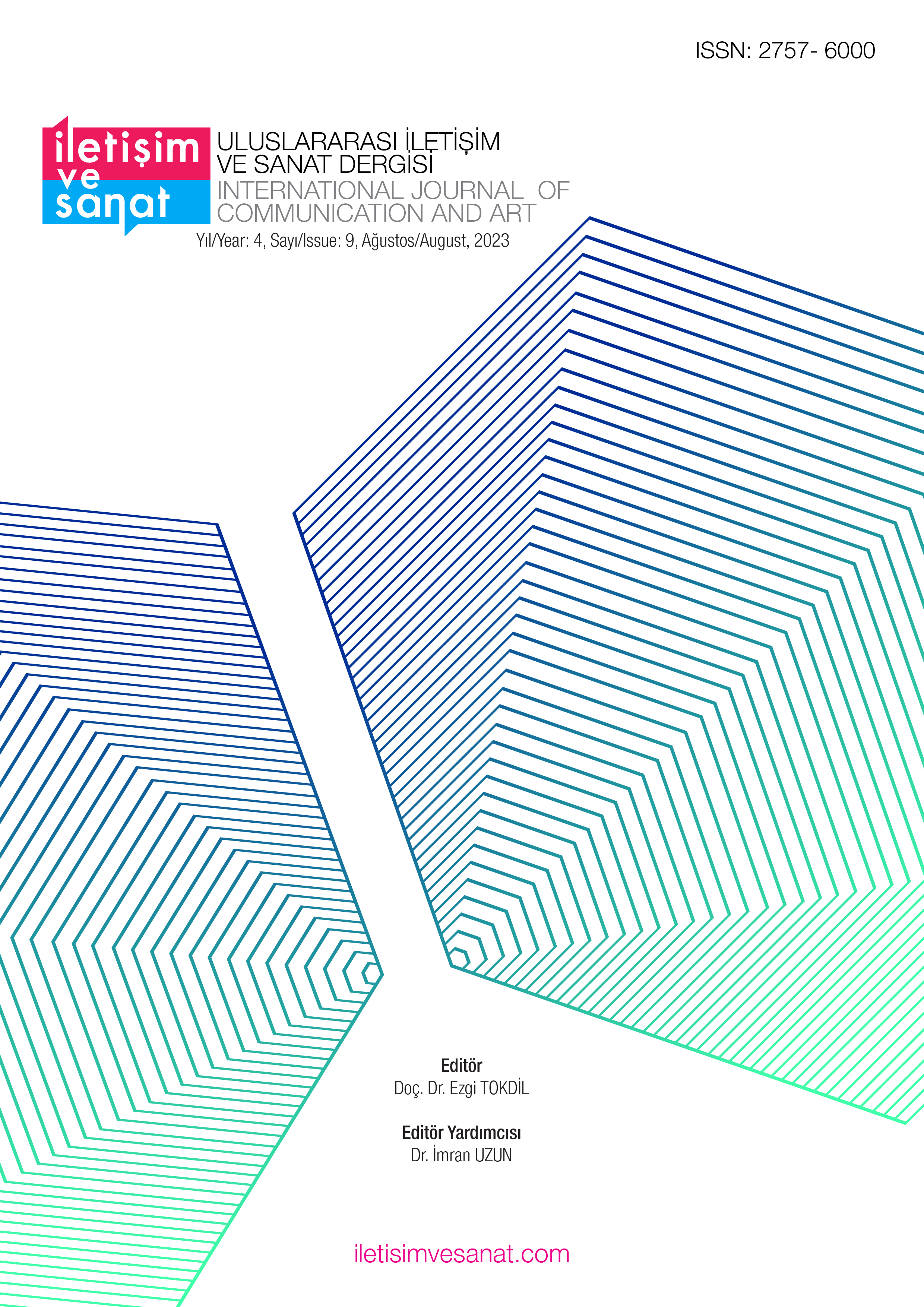Author :
Abstract
Türkiye, geçmişten günümüze pek çok siyasi, ekonomik ve toplumsal olayla mücadele etmektedir. 1960, 1971 ve 1980 askeri darbeleri ile bu alanlarda pek çok değişim ve yenilik meydana gelirken, Türk halkı da yaşanan olayların etkisinde kalmıştır. Darbenin, devlet ve toplumsal yapı üzerindeki etkileri Türk sinemasına da yansımış, dönemin yaşanan sorunları filmlere konu olmuştur. Bu çalışma, Türkiye’de yaşanan toplumsal hareketliliklerin Türk sinemasına yansımalarını ve yönetmenlerin Türk sinemasında kalıplaşmış düzene karşı gösterdikleri direnişi ortaya koyması açısından önemlidir. Türk sinemasında devam eden düzenin sebebini, neden farklı çalışmalara imkân tanınmadığını ve yönetmenlerin bu sorunu filmlerinde nasıl ele aldığı çalışmanın problemidir. 1980-1990 yılları arasında çekilen Türk sinema filmlerinden Arabesk, Aşk Filmlerinin Unutulmaz Yönetmeni ve Gece Yolculuğu filmleri örneklem alınmış, göstergebilimsel çözümleme ve söylem analizi yöntemi ile analiz edilmiştir. Seçilen bu üç filmin analizi ile Türk sinemasının kendini nasıl eleştirdiğini ortaya koymak amaçlanmaktadır. Yönetmenlerin, Türk sinemasına karşı eleştirisini gözler önüne sermek, bu çalışmanın temel çıkış noktasıdır.
Keywords
Abstract
Turkey has been struggling with many political, economic and social events from past to present. While many changes and innovations took place in these areas with the military coups of 1960, 1971 and 1980, the Turkish people were also affected by the events. The effects of the coup on the state and social structure were also reflected in Turkish cinema, and the problems of the period were the subject of films. This study is important in terms of revealing the reflections of the social movements in Turkey on Turkish cinema and the resistance of the directors against the stereotyped order in Turkish cinema. The reason for the ongoing order in Turkish cinema, why different studies are not allowed, and how the directors deal with this problem in their films is the problem of the study. Arabesque, Unforgettable Director of Love Movies and Night Journey, which were Turkish movies shot between 1980-1990, were taken as samples and analyzed with semiotic analysis and discourse analysis method. With the analysis of these three selected films, it is aimed to reveal how Turkish cinema criticizes itself. The main starting point of this study is to reveal the critics of the directors against Turkish cinema.





